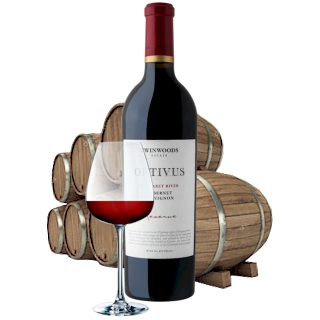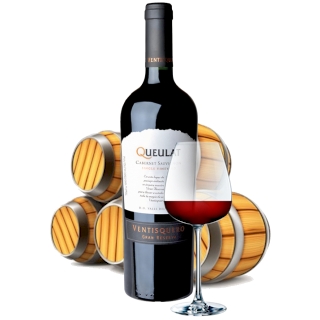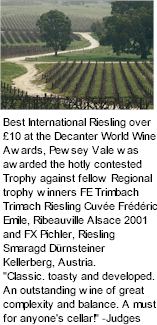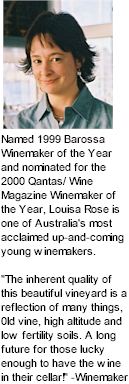


Pewsey Vale's founder, Englishman Joseph Gilbert, arrived in South Australia after seeing an advertisement in the London Times announcing the vessel, The Buckinghamshire's imminent departure for the colony. Land was up for grabs and Joseph wasted no time grabbing it, just four months after his arrival - 15,000 acres of rugged high country in the then-wild and remote Barossa ranges, some 40 miles from Adelaide. By 1841, just two years after his arrival, Joseph, the 38 year old son of a well-heeled English landowner, had built a fine homestead and planted Pewsey Vale's first grapevines. The vines were of a table grape variety, but an idea was starting to take shape...

In 1847 Joseph planted a one-acre vineyard, establishing Eden Valley's pioneer vineyard and one of Australia's first high altitude, cool climate vineyards. At the same time, several hundred feet below, Johann Gramp was planting the Barossa Valley's first commercial vineyard. The pioneering Joseph Gilbert trialled many different grape varieties at Pewsey Vale, later distributing cuttings to aspiring vignerons in surrounding areas. His experimental approach to viticulture and winemaking helped lay the foundations for the wine industry that would become so important to the region.
During the 1920s, Pewsey Vale succumbed to the fate of so many of Australia's early vineyards, falling into disuse as a result of the severe economic hardship of the Great Depression. The vineyard's potential was rediscovered at a time when only the history books recorded the existence of the original vineyards. In 1961, Pewsey Vale's then-owner, Geoffrey Angas Parsons, became aware that his property had once incorporated the region's earliest vineyard. Excited by his discovery, he wasted no time in paying a visit to his good friend Wyndham Hill Smith of Yalumba with a proposal to restore the Pewsey Vale vineyard.
Parson's proposal was timely indeed, coming at a time when several of the larger, more innovative wine companies were considering potential vineyard sites with cooler ripening conditions than could be found on the Barossa Valley floor. Wyndham Hill Smith, convinced of the potential of the area, needed no further persuading and work at Pewsey Vale began soon after. Riesling was planted as a matter of course - initially 56 hectares planted in contoured rows.

With an altitude varying between 485 metres and 500 metres, Pewsey Vale sits 250 metres above the Barossa Valley floor. The cooler temperatures found at this height encourage a longer ripening period which extends well into autumn. This longer ripening period is essential for producing superior quality grapes with exceptional flavour and character - hallmarks of Pewsey Vale wines. Block to block variation enables winemakers to select from separate parcels of fruit to tailor wines to the Pewsey Vale style, ensuring consistency from vintage to vintage.
Pewsey Vale is not an easy vineyard to manage. Lean and hungry soils which limit the vigour of the vines, the high altitude and the vineyard's specific micro-climate have necessitated the adoption of specialised viticultural management. Yet, it is this unpredictable and demanding nature that is the very essence of the vineyard's special appeal. Ensuring a natural balance is of paramount importance and this is reflected in every aspect of the vineyard's management.
Soils at Pewsey Vale are shallow light sandy loams over light to medium clay. Riesling grows well in bony soils with some clay subsoil, as found throughout much of Eden Valley. At Pewsey Vale there are 25 hectares of Riesling planted, mainly on traditional single wire trellis. The low fertility of the soil keeps viogour and yield down and the canopy open, making it easier to deal with the susceptibility of Riesling to Botrytis as the fruit is well-exposed.
The planting material at Pewsey Vale is the Pewsey Vale Clone, which was planted in Eden Valley in the 1800's and can be traced back to some of the original vine cuttings brought into Australia by James Busby. Any new plantings at Pewsey Vale are propagated from the original vines. Pewsey Vale Riesling flavour profiles range from fresh grapefruit and limes to lemons in cooler years, with hints of tropical fruit - mainly passionfruit tending towards pineapple. The palate is long and finishes crisp with high natural acidity. With bottle age, the flavours develop elegantly moving towards toast, orange blossom and honey, yet retaining the classic fresh citrus lift and palate weight that is the hallmark of Pewsey Vale Riesling.
